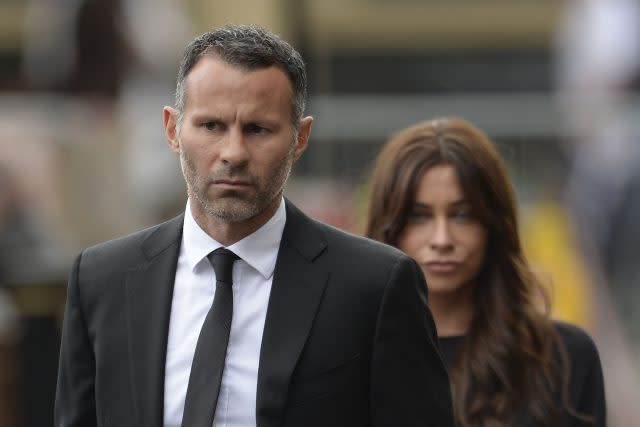Ryan Giggs and estranged wife Stacey settle cash fight in special hearing

Former Manchester United footballer Ryan Giggs and his estranged wife Stacey settled a fight over cash after taking part in a special behind-closed-doors divorce court hearing.
They reached agreement after appearing at a "financial dispute resolution" - FDR - hearing at the Family Division of High Court in London.
The hearing was presided over by Mr Justice Mostyn, a High Court judge who specialises in family litigation, on Thursday.
Judges overseeing such hearings offer guidance, in the hope that disputes can be resolved, rather that make decisions.

Barristers and solicitors appear with clients but court rules mean that neither journalists nor members of the public can attend.
Lawyers representing both Giggs and Mrs Giggs announced a settlement following Thursday's hearing and said the "FDR process" had helped the pair reach agreement.
Another judge had previously overseen preliminary hearings in the dispute.
"Ryan and Stacey Giggs are pleased to say that with the assistance of the court-driven FDR process they have managed to reach a financial settlement in their divorce," said solicitors Katie McCann, who represents Giggs and is based at law firm Kuits, and James Brown, who represents Mrs Giggs at law firm Hall Brown.
"This concludes the divorce proceedings and they will not be making any further comment."
Lawyers said the terms of the settlement were confidential but added Giggs and Mrs Giggs were leaving "this chapter of their lives" as "firm friends".
In August a family court judge had signalled the end of the Giggs' 10-year marriage. Judge Yvonne Gibson had granted a decree nisi at a family court hearing in London.
A law firm has explained how financial dispute resolution hearings operate in an article on its website.
Lawyers at the JMW law firm said an "FDR" hearing was "special".
"It is a court hearing, presided over by a judge but rather than making decisions about the outcome of the case, the judge instead offers guidance as to the range of likely settlements that might be imposed if the case were to go all the way and end in a final hearing," says the article.
"The judge should have been given comprehensive information about the family finances and details of each party's... offers.
"He or she will listen to each party's legal representative (or the parties themselves if they are self-represented), consider their assessment of the facts of the case and the reasoning behind their (offers).
"The judge will then offer guidance as to what might happen if the case were decided at a final hearing.
"This is only an opinion but it is the opinion of someone who deals with (and decides) similar cases all the time."


